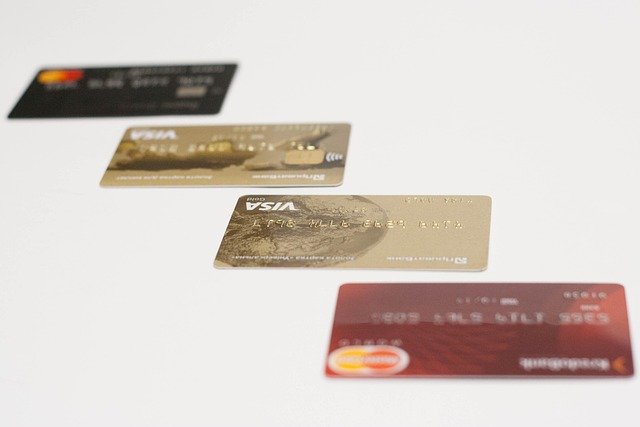What Credit Score Do You Need to Get a Credit Card?
Understanding credit scores is essential when applying for credit cards. Different card issuers have varying requirements, and your credit score plays a crucial role in determining your eligibility. This comprehensive guide explains what credit scores are needed for different types of credit cards and how to improve your chances of approval.

Your credit score is one of the most important factors that credit card issuers consider when reviewing your application. Different credit cards are designed for different credit profiles, ranging from options for those with excellent credit to cards specifically created for people with limited or damaged credit histories.
What Credit Score Do You Need for Different Credit Cards?
Credit card issuers typically categorize credit scores into ranges that help determine eligibility. While specific requirements vary by issuer, here’s a general breakdown of what you might need:
- Premium rewards cards: 720+ (Excellent)
- Standard rewards cards: 670-719 (Good)
- Basic credit cards: 580-669 (Fair)
- Secured credit cards: Below 580 (Poor)
Premium cards with extensive benefits and high rewards rates generally require excellent credit scores above 720. Standard rewards cards are typically accessible to those with good credit in the 670-719 range. If your score falls in the fair category (580-669), you may qualify for basic credit cards with fewer features but reasonable terms. For those with poor credit scores below 580, secured credit cards that require a security deposit are often the most accessible option.
How to Check Your Credit Score Before Applying
Before submitting credit card applications, it’s wise to know where you stand. There are several ways to check your credit score:
-
Free credit monitoring services: Many banks and credit card issuers offer free credit score access to their customers.
-
Credit bureaus: Equifax, Experian, and TransUnion each allow one free credit report annually through AnnualCreditReport.com, though these reports may not include your actual score.
-
Third-party services: Websites like Credit Karma, Credit Sesame, and NerdWallet offer free credit score checks that don’t impact your credit.
-
Paid monitoring services: For more comprehensive monitoring, paid services provide regular updates and additional features.
When checking your score, be aware that you have multiple credit scores. FICO scores are most commonly used by lenders, but VantageScore is another popular model. Additionally, scores can vary slightly between the three major credit bureaus based on what information each has on file.
Options for Those with a Low Credit Score
Having a low credit score doesn’t mean you can’t get a credit card. Several options are designed specifically for those looking to build or rebuild credit:
Secured credit cards require a security deposit that typically becomes your credit limit. This deposit minimizes the issuer’s risk, making these cards accessible even to those with poor credit. Most major banks offer secured card options.
Student credit cards are designed for college students who may have limited credit history. These often have more lenient approval requirements and may offer student-specific benefits.
Store credit cards from retailers sometimes have more relaxed credit requirements, though they typically come with higher interest rates and can only be used at specific stores.
Authorized user status on someone else’s credit card account can help you build credit without needing to qualify for your own card, as their payment history may be reported on your credit file.
Factors Beyond Credit Score That Affect Approval
While your credit score is important, card issuers consider several other factors when evaluating applications:
Income and debt-to-income ratio: Issuers want to ensure you have sufficient income to make payments relative to your existing debt obligations.
Employment status: Stable employment history suggests reliable income for making payments.
Recent credit inquiries: Multiple recent applications for credit can signal financial distress.
Credit utilization: Using a high percentage of your available credit can indicate financial strain, even with a decent score.
Payment history: Late payments, collections, or bankruptcies can outweigh a borderline acceptable score.
Credit Card Options Based on Credit Score Ranges
The credit card market offers products tailored to different credit profiles, with varying features and requirements. Here’s a comparison of typical options available across different credit score ranges:
| Credit Score Range | Card Types Available | Typical Features | Annual Fee Range |
|---|---|---|---|
| Excellent (720+) | Premium rewards, travel | High rewards rates, travel perks, high limits | $0-$550 |
| Good (670-719) | Standard rewards cards | Moderate rewards, decent benefits | $0-$95 |
| Fair (580-669) | Basic cards, retail cards | Limited rewards, building credit features | $0-$39 |
| Poor (below 580) | Secured cards, credit builder | No rewards, security deposit required | $0-$49 |
Prices, rates, or cost estimates mentioned in this article are based on the latest available information but may change over time. Independent research is advised before making financial decisions.
How to Improve Your Credit Score for Better Card Options
If you’re not satisfied with the credit card options available at your current score level, consider these strategies to improve your credit profile:
-
Pay bills on time: Payment history accounts for about 35% of your FICO score, making timely payments crucial.
-
Reduce credit utilization: Try to use less than 30% of your available credit limit across all accounts.
-
Limit new applications: Each application typically results in a hard inquiry that temporarily lowers your score.
-
Diversify credit mix: Having different types of credit (revolving accounts like credit cards and installment loans) can positively impact your score.
-
Check for errors: Review your credit reports regularly and dispute any inaccuracies.
-
Consider a credit-builder loan: These specialized loans are designed specifically to help establish or rebuild credit history.
Improving your credit score takes time, but even small improvements can expand your credit card options significantly. Many people see meaningful progress within 3-6 months of implementing these strategies consistently.
Remember that responsible credit card use is essential regardless of which card you qualify for. Making payments on time and keeping balances low will help improve your credit score over time, potentially qualifying you for better credit card products in the future.




